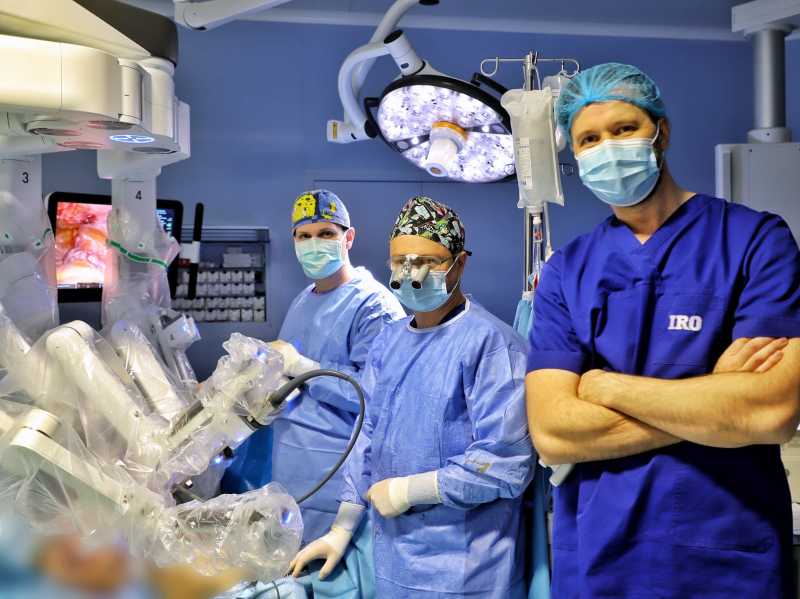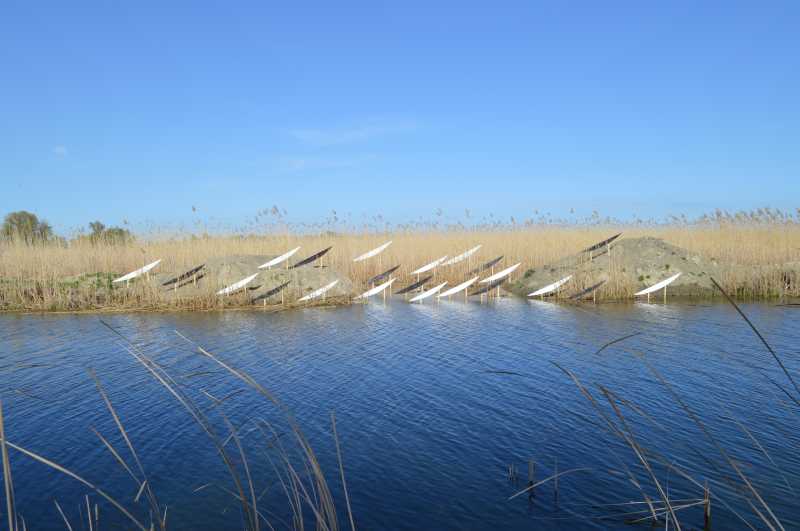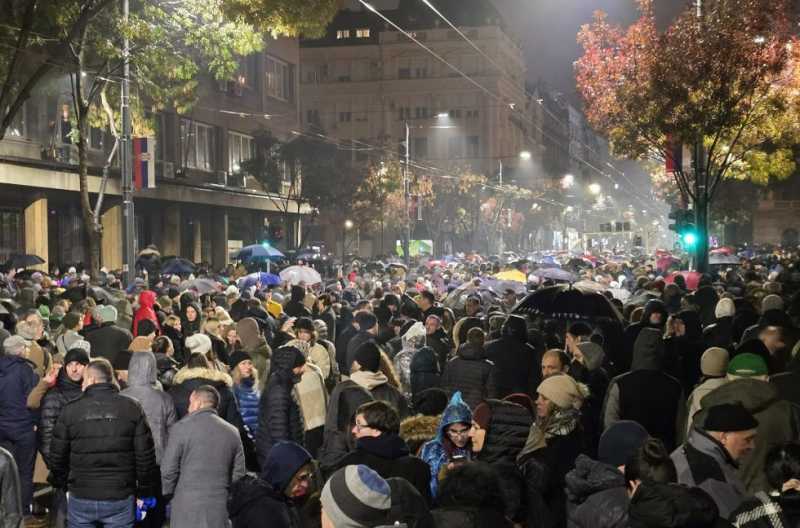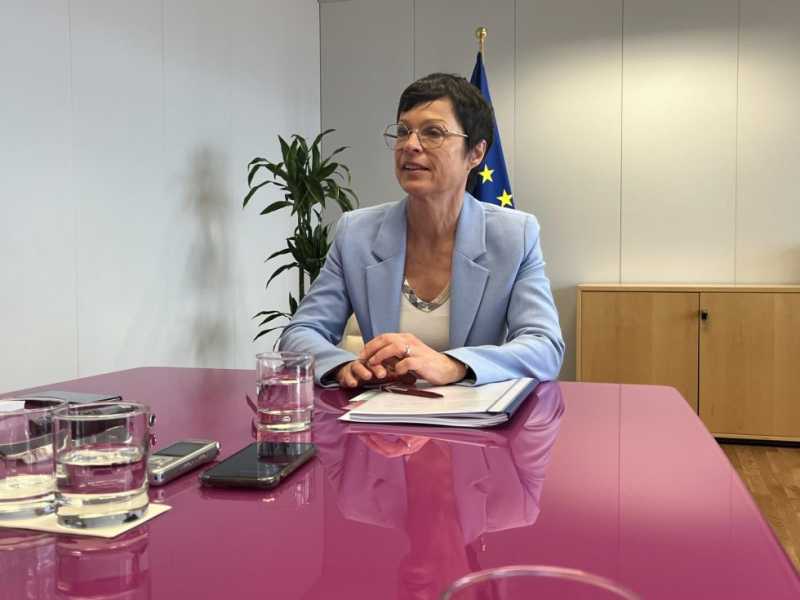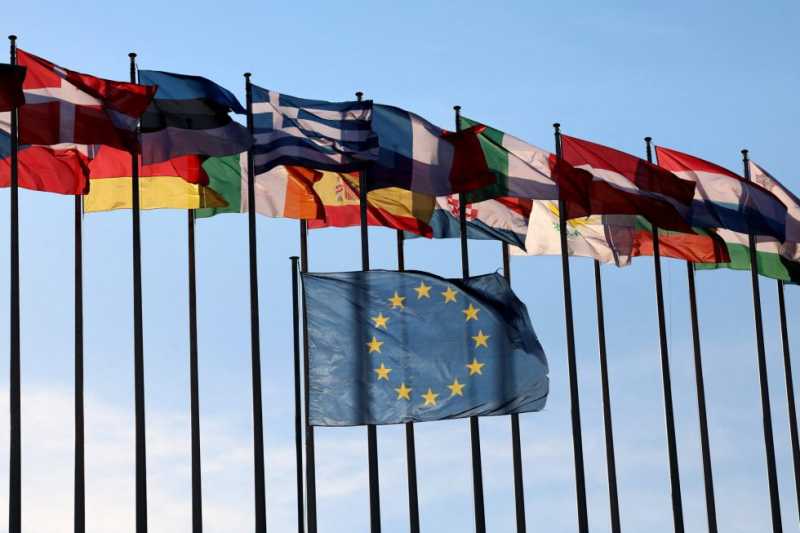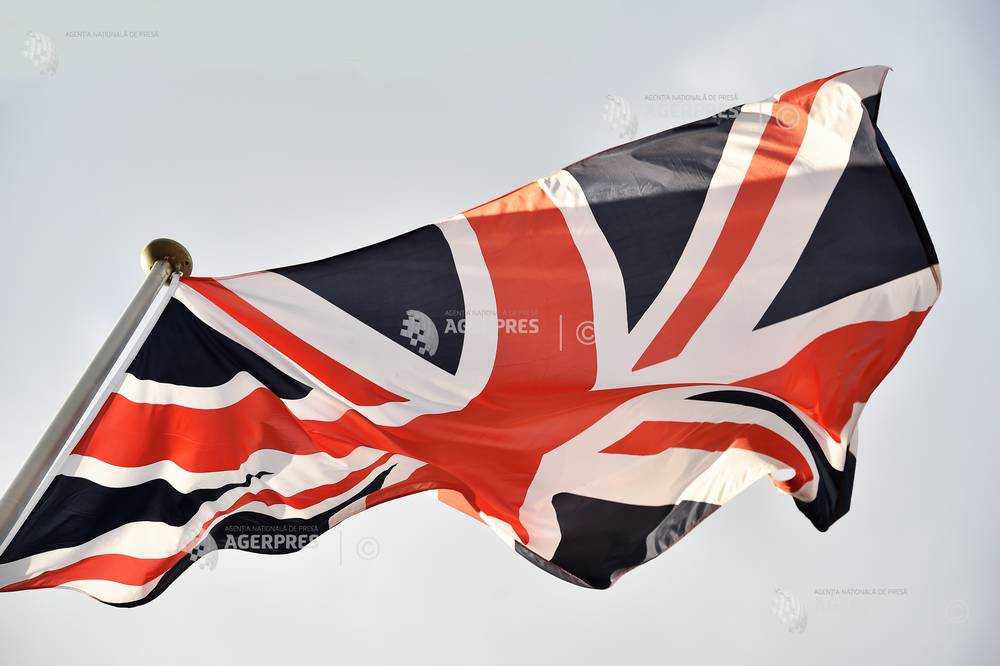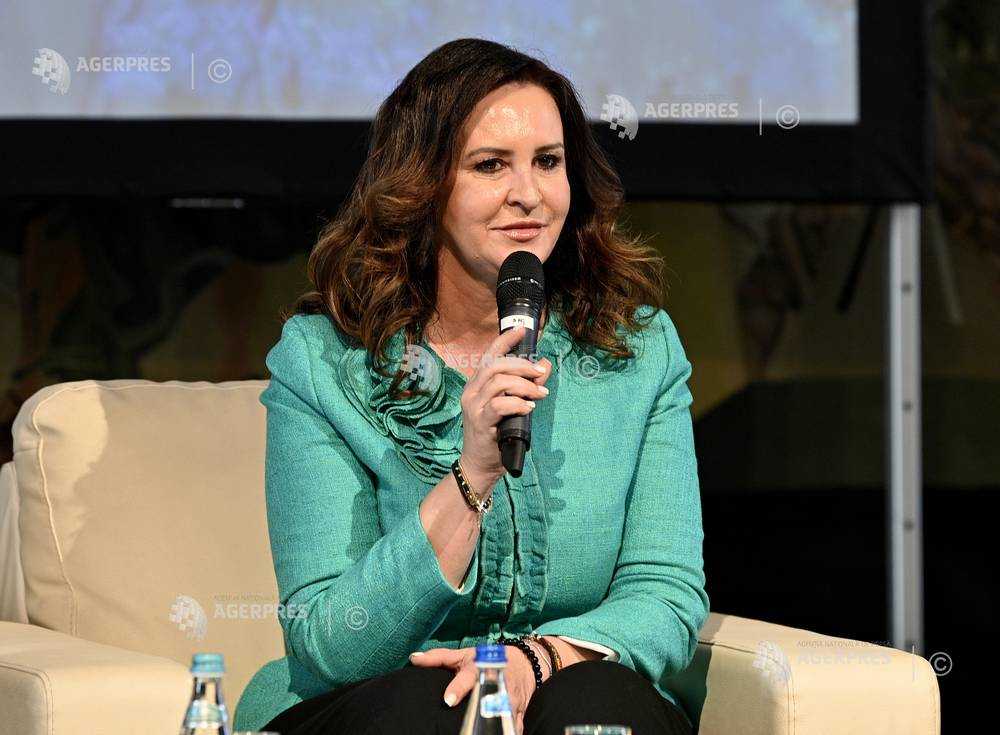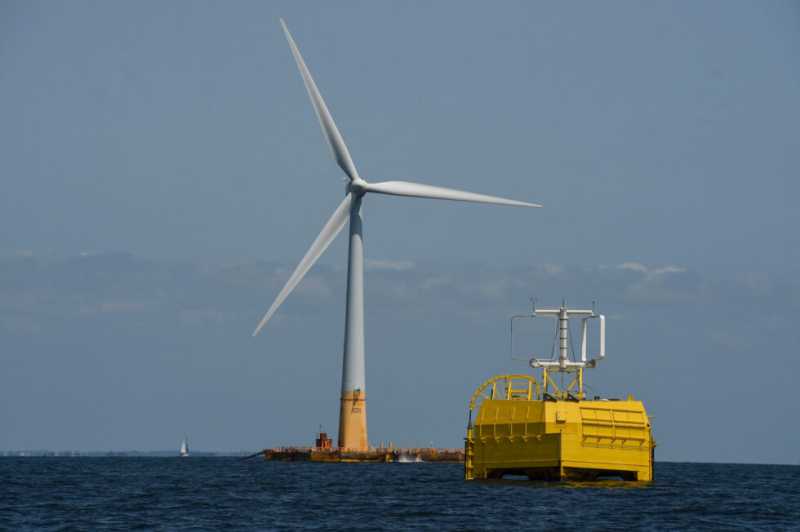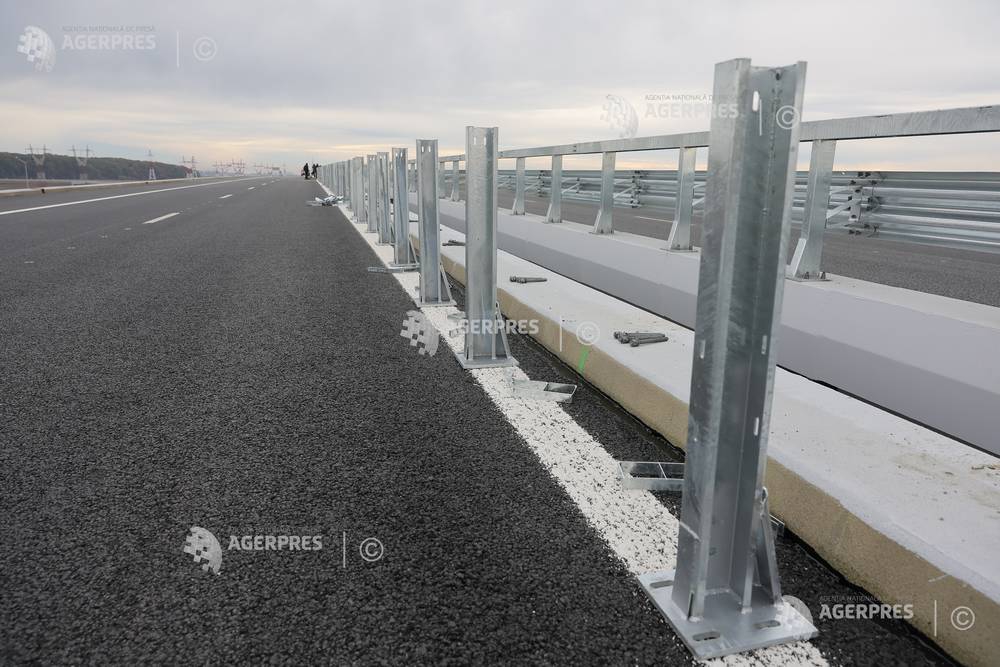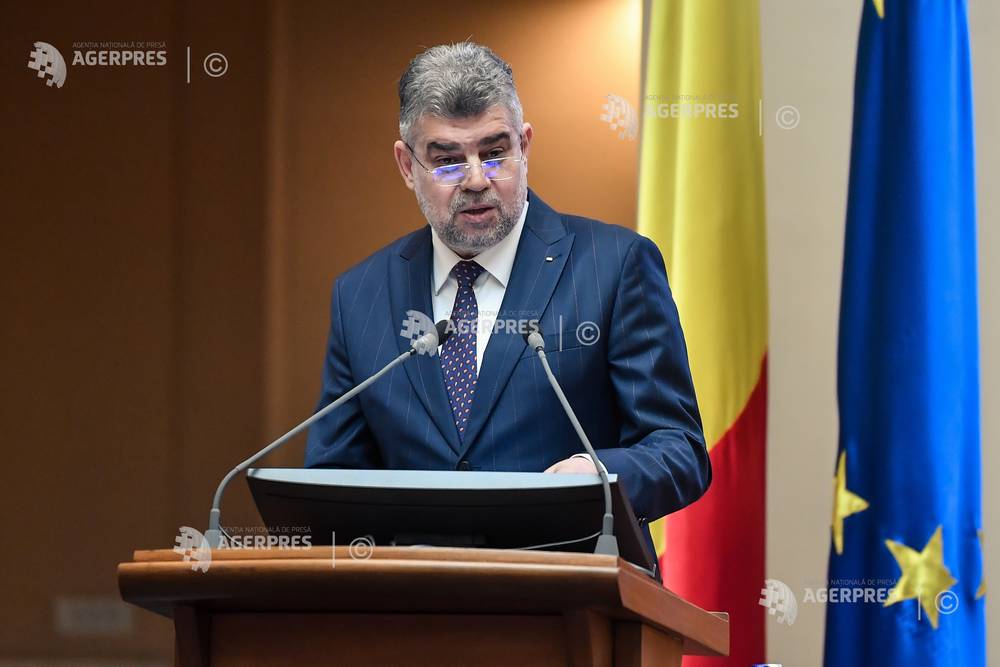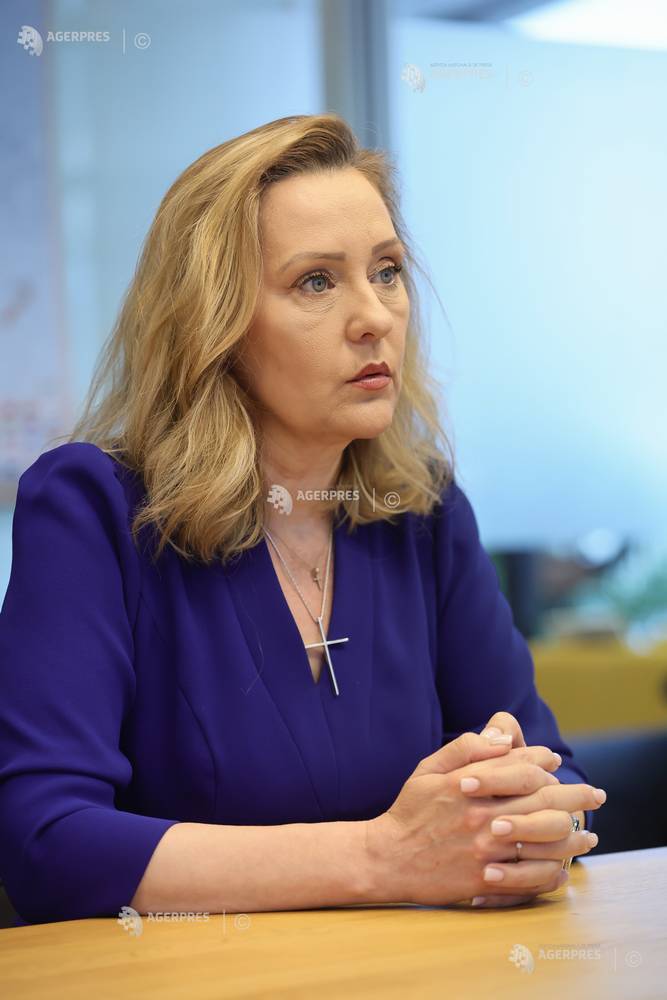Defence dollars or Euros? A heavy transatlantic question for the European defence ramp up (enr)
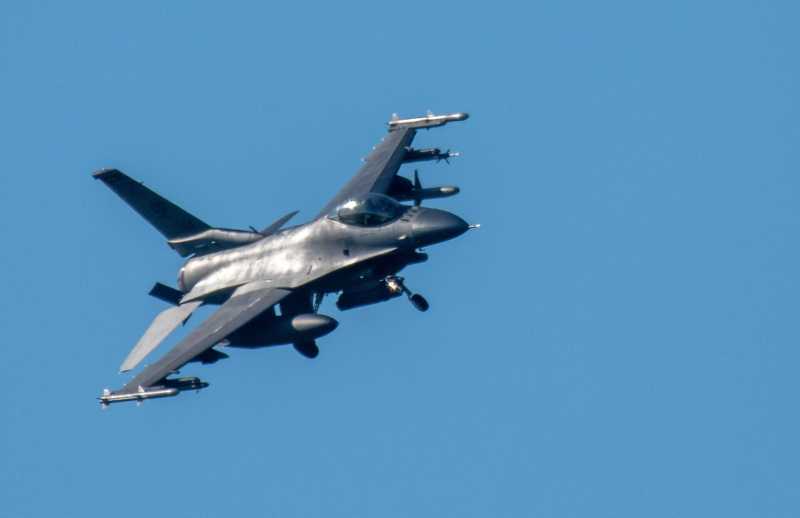
Europe is amidst a rearmament effort in the wake of the ongoing full-scale Russian invasion of Ukraine. Now that the United States is no longer viewed as a guaranteed reliable partner under President Donald Trump, should American companies continue to supply European militaries?
'We are moving decisively towards a strong and more sovereign Europe of defence,' European Council President António Costa declared recently after a crisis summit of EU leaders to greenlight a rearmament plan against the rising threat from a revanchist Russia.
'We are putting our money where our mouth is,' the former Portuguese prime minister underlined.
A pressing question facing the European Union however is where to spend this money. Should the billions go to defence companies in Europe or in America?
What is the plan?
EU leaders, shaken by the prospect of United States disengagement from the bloc's security, and US President Donald Trump's clash with Ukrainian President Volodymyr Zelenskyy in the White House, backed a plan to boost the bloc's defences and military support for Ukraine as it continues to resist Russia's invasion.
The plan is a dramatic ramp-up in defence spending, mobilising 800 billion Euro over the next four years, including 150 billion Euro in loans for arms projects raised by the European Commission on capital markets and guaranteed by the EU budget, and allowing exemptions from EU debt rules for EU member states for defence investments.
Other measures to unlock more money start with a reform of the EU cohesion funds to remove restrictions on their use for defence, a role for the European Investment Bank (EIB), and the mobilisation of private funding thanks to the completion of the Capital Markets Union.
Money to burn
The initiative now needs to be put into action. But this is usually when the real problems in the EU arise.
Several countries are unhappy that the plan did not go far enough financially.
Greek Prime Minister Kyriakos Mitsotakis said there should be serious consideration of more large-scale new EU borrowing.
The EU has only used this type of borrowing called 'Eurobonds' once before, during the coronavirus pandemic, to mitigate economic fallout. However, countries like Germany, the Netherlands, and Austria remain firmly opposed to their use again.
Germany's incoming government last month passed changes to the country's strict spending limits to clear the way for hundreds of billions of Euro towards new investments for defence and infrastructure.
Debt-averse Holland is unlikely to follow this path while highly indebted countries like Italy and France may not possess the fiscal ability.
Buy European
The other thorny aspect is the 'Buy European' principle, strongly desired by France to boost European industry, where European public funds are spent in the EU with European defence companies.
Here, too, positions are divided among those EU member states who would like to see a more open value chain, perhaps even including the US, after accessing the 150 billion Euro fund raised by the Commission.
The 'Buy European' initiative is designed to encourage joint procurement, especially on major projects of collective interest such as air defence, long-range missiles, cargo planes, cyber or space investments.
Following the 'Buy European' principle, the value of trade in armaments between the 27 EU countries will have to account for at least 35 percent of the value of the entire continental market by 2030. Right now the share is 15 percent.
EU foreign policy chief Kaja Kallas threw her weight behind the move to reduce Europe's reliance on America for defence procurement.
'We are buying a lot from the Americans right now, but we need to diversify our portfolio so that we have capabilities to produce [the] ammunition and things that we need here,' Kallas said at an informal meeting of EU defence ministers in Warsaw last Thursday.
Sweden is one of the strongest supporters of having close cooperation in defence matters with countries outside of the EU - partly because of the strong links between the Swedish defence industry and the sector in Norway and the United Kingdom.
At the same time, Sweden does not mind the 'Buy European' principle since it would also benefit the Swedish industry, with big companies like Saab, Bofors and Hägglunds.
'It is strange that 80 percent of the arms in Europe are bought from the US, when we have a successful European defence industry,' Prime Minister Ulf Kristersson said in February.
'Buy European' or buy French?
Germany, France and Poland recently announced plans to bolster their militaries.
Warsaw aims to earmark around 5 percent of its economic output for military expenditure next year compared with 4.7 percent in 2025. Poland also wants to make it easier for companies outside of the EU to access the bloc's defence spending, a position at odds with France.
France, with a well-developed defence industry, is the strongest proponent of the 'Buy European' principle and has long-campaigned for Europe to develop a capacity to act independently of the US in global affairs.
President Emmanuel Macron announced plans to increase orders for French Rafale fighter jets, adding the country will have to get ready to defend itself 'if we want to avoid war'.
France is also set to deliver several hundred Mistral surface-to-air missiles to Denmark, the Élysée Palace announced at the start of April.
Denmark has been seeking European backing in recent months to counter Trump's threats to take over Greenland.
From hot to cold
French defence industry interests extend from the EU's colder climes to warmer Mediterranean waters.
Greece has recently signed a military cooperation agreement with France, ordering 24 Rafale fighter jets and three Belharra-class defence and intervention frigates (FDI) for a total of more than 5.5 billion Euro. And three more of the frigates could be built in Greek shipyards under a new proposal, according to a source at France's Naval Group.
Athens has traditionally invested at least 2 percent of gross domestic product (GDP) on its defence -NATO's spending target - owing to decades of tension with regional rivals Turkey. The Greek government plans to invest 25 billion Euro in defence over the next 12 years.
A dutiful buyer of European military equipment, especially from France and Germany, Greece has always justified its arms spending by pointing to territorial disputes and threats from historic rival Ankara.
Close to the conflict zones of the Middle East, Greece has also sought to strengthen its position on the EU's Eastern Mediterranean border.
Athens has also signed a deal for the acquisition of 20 US-made F-35 fighter jets.
Croatia and Bulgaria military spending in profile
Further north, Croatia has displayed similar pragmatism, purchasing weapons and equipment from both European and American manufacturers.
Even before Trump was elected president, Croatia ordered 8 M142 High Mobility Artillery Rocket Systems (HIMARS) from the American manufacturer Lockheed Martin.
Croatia has also decided to acquire 89 used Bradley M2A2 infantry fighting vehicles from the US. Last year, Croatia signed a deal to purchase 8 UH-60M Black Hawk helicopters for the Croatian Army.
In 2021, Croatia signed a deal to purchase 12 used Rafale multipurpose fighter jets produced by French aircraft manufacturer Dassault Aviation. The deal covered weapon systems, spare parts, logistics and training.
The acquisition has enabled the Croatian Air Force to replace its outdated Soviet-designed MiG-21 fighters.
Croatia has also purchased French air defense systems, including the MBDA Mistral 3 short-range air defense system and is in the process of finalising the purchase of 30 French CAESAR 155mm self-propelled howitzers.
In October, Croatia and Germany signed a letter of intent (LoI) for Croatia to acquire up to 50 new German Leopard 2A8 main battle tanks (MBTs) at a reduced price in return for transferring tanks and infantry fighting vehicles (IFVs) to Ukraine.
In recent years, as part of its broad drive to modernise its armed forces in keeping with NATO standards and to raise defence spending, Bulgaria has turned both to European and US manufacturers.
It has a contract for designing and building two multipurpose modular patrol vessels from Fr. Lürssen Werft GmbH & Co.kG of Germany. The project was worth approximately 503 million Euro.
To modernise its air force, Bulgaria has signed up to purchase F-16 Block 70 multirole fighter jets from Lockheed Martin. It will acquire 16 jets for 3 billion Dollars in total.
Bulgaria also has a contract for 183 Stryker vehicles and related equipment for the Bulgarian Armed Forces for an estimated 1.5 billion dollars. An additional 170 million dollars is to be spent on ammunition. The first deliveries of the Stryker vehicles are expected in the third quarter of 2025.
A different conversation
In Slovakia, the conversation around defence is in a different place. EU lawmaker ¼udovít Ódor, a former prime minister and member of the opposition party, Progressive Slovakia, is in favour of increased European defence spending.
However, he thinks it is premature to talk about a specific percentage increase. 'All spending at European and national level must be based on a common strategy in which synergies can be found. Let's define them first and then we can talk about specific percentages,' he said.
By contrast, independent MEP Branislav Ondruš, who votes with the current populist, Russian-sympathetic Slovak government, considers the Commission defence spending plan to be insane.
Ondruš believes that increased spending on weapons will not make Europe more secure. 'I agree with the need to strengthen Europe's security, but we have to do it in a different way, armaments have never brought more security,' he said.
The Slovak independent EU lawmaker did not outline how he plans to make Europe more secure without armaments.
The content of this article is based on reporting by AFP, ANSA, BTA, dpa, EFE, HINA, TASR, TT, as part of the European Newsroom (enr) project. AGERPRES (editing by: Mariana Ionescu)
The content of the www.agerpres.ro website has the exclusive purpose of public informing.
All the information published on this website by AGERPRES is protected by relevant legal dispositions.
It is forbidden to copy, reproduce, recompile, decompile, distribute, publish, display, modify, create derived components or products or full services, as well as any exploitation of the site's content.
Details in the section Terms of Use. If you are interested in picking up AGERPRES news items, please contact the Marketing Department – [email protected].
The use of the Comments section entails your obligation to respect the AGERPRES terms and conditions in regards to the publishing of comments on the www.agerpres.ro.
Other news in category
DefMin Tilvar: Every Romanian soldier is very important for our country's defence
Every Romanian soldier is very important in ensuring our country's security, regardless of where they operate, defence minister Angel Tilvar said during a videoconference with the ministry of defence leadership and the Romanian soldiers in the theatres of operations. According to a press release of the Ministry of Defence, the commanders of the Romanian de
First robot-assisted breast reconstruction surgery in Romania and Eastern Europe performed in Iasi
The first robot-assisted breast reconstruction surgery was performed at the Regional Institute of Oncology (IRO) in Iasi, marking a first in Romania and Eastern Europe. The IRO Iasi announced on Thursday that, in collaboration with the 'Grigore T. Popa' University of Medicine and Pharmacy in Iasi, the first robot-assisted breast reconstruction was succ
DOCUMENTARY/ Easter preparations turn into art in Danube Delta
The first art installation of the Gallery in the Pond project, initiated by the Ivan Patzaichin-Mila 23 Association, was completed on Wednesday, the artistic residency program that brought artists from the United States, Bulgaria and Romania to the Danube Delta, thus becoming a way to internationally promote the reserve. At the same time, the inhabitants of th
Pastry makers estimate baking fewer cozonaci for Easter, with 30% to be exported
Pastry makers estimate they will bake fewer cozonaci (traditional sweet breads or sponge cake) this Easter due to increased costs following the elimination of tax breaks in the food industry, as well as the high markups imposed by some retailers. 'This year, we think we'll bake fewer cozonaci because producers are facing higher costs, and some retailer
EU enlargement chief backs Serbian protesters, calls for urgent return to 'European track' (enr)
EU Enlargement Commissioner Marta Kos has called on Serbia's incoming government to ensure the country gets back on track towards EU membership. She warned that accession was at stake unless the country tackled key issues. The European Union's enlargement chief, Marta Kos, has backed calls by protesters in Serbia to tackle corruption and boost the rule
Kos: new wave of EU enlargement by 2030 'realistic' (enr)
EU Enlargement Commissioner Marta Kos regards a new wave of enlargement by 2030 as 'realistic' with Ukraine, Moldova, Albania and Montenegro leading the way. But she warns that progress hinges on merit and commitment by the EU candidate countries to deliver on required reforms. The European Commissioner for Enlargement, Marta Kos, said a new wave of EU
EU Enlargement Commissioner warns of external forces derailing EU integration (enr)
The EU's enlargement chief has issued a stark warning that the bloc's credibility and security are at stake as foreign powers seek to disrupt the process of new members joining. The European Commissioner for Enlargement, Marta Kos, is expecting great progress in the European Union's enlargement during the next years, but warned of external forces s
Gov't approves Romania - UK Convention on double taxation elimination
The Executive approved on Wednesday a bill on the ratification of the Convention between Romania and the United Kingdom of Great Britain and Northern Ireland for the elimination of double taxation with respect to income and capital gain taxes and the prevention of tax evasion and avoidance, as well as of the Protocol annexed to the Convention signed in London on November 13,
Concerts, fairs and youth parade to mark Brasov Days days after Easter
In the week after Easter, between April 25 and 27, the Brasov City Hall organises the Days of Brasov. The event includes a series of concerts and themed fairs and also integrates the events organised by seven groups of young and unmarried men of Scheii Brasovului. The three fairs to be organised are the Easter Fair in the Council Square and the gastronomic one
Under RO-CULTURA, EUR 34 million granted to showcase Romania's cultural heritage
Romania has managed to unite, save and enhance its cultural heritage with the aid of external funds allocated by Norway, Iceland and Liechtenstein - EUR 34 million - Romania's Minister of Culture Natalia Intotero said on Wednesday at the news conference marking the closing of the RO-CULTURA Programme. Under RO-CULTURA, seven calls were released and 67 proj
Two-speed Europe? Green investment gaps raise concerns (enr)
The EU is at risk of falling behind in the global race for green technology, with a top official warning that its manufacturing capacity is not keeping pace with climate goals. The EU is losing ground in the production of green technologies, sparking fears over how this will impact the bloc's emissions targets and its global competitiveness.
Curtea de Arges to Bucharest travel to be possible via motorway as of May
As of May, travel from Curtea de Arges to Bucharest will be possible via motorway, announced National Company for Road Infrastructure Administration (CNAIR) Director General Cristian Pistol. 'Sibiu - Pitesti Motorway (A1): we are getting closer and closer to opening the entire Pitesti - Curtea de Arges section (30.35 km) to traffic! The Italian contractor
PM Ciolacu: Population can secure 20pct of our country's need for borrowing, showing confidence in economy
Estimates show that the population can secure more than 20pct of Romania's need for borrowing, which is a record and shows the confidence of Romanians in the development of our national economy, prime minister Marcel Ciolacu stated on Wednesday. 'Romanian already invested a huge amount in government bonds this year, almost 17.5 billion RON so far. Esti
PresidentialElection2025/IRSOP poll: George Simion and Nicusor Dan - leading preferences
The Alliance for Romanians' Union (AUR) party leader George Simion and Bucharest's general mayor Nicusor Dan are leading in voter preferences for the presidential elections in May, with only a three-percentage-point gap between them, according to an IRSOP poll conducted April 4-14. According to the sociological research, 31% of Romanians said they woul
PresidentialElections2025/INTERVIEW Elena Lasconi: I will challenge my party colleagues' decision to cut my funding with Constitutional Court
USR (Save Romania Union) chairwoman Elena Lasconi, one of the candidates in the May presidential elections, claimed, in an interview with AGERPRES, that she will file challenges with the Constitutional Court, the Permanent Electoral Authority and the court because she is prevented from campaigning, showing that, through the decision taken by 'a handful of people' in



